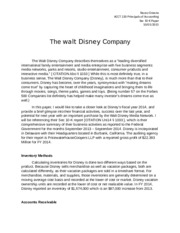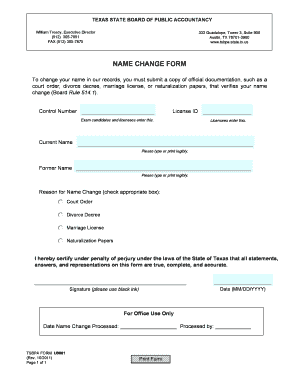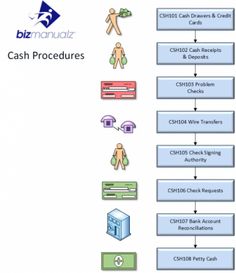Accounting for Startups The Ultimate Startup Accounting Guide

Our team loves working with startup companies, not only that, but Kruze cares more! We’ve got the experience to help you make critical financial decisions. We have former VCs on staff to help prepare you for your next funding round, and former IRS agents on hand to assist you as you think through the tax ramifications of selling your company. And our advice can grow with your company, from simple startup CPA accounting to part-time CFOs. Startup accountants and CPAs are a special breed of advisors. Whereas a traditional small business focuses on their bank account balance, startups focus on the KPIs that help them raise their next round of funding.
But if you have a consulting business or you visit your customers directly, you will be traveling a lot. You’ll need to factor in the price of transportation, food, and lodging — multiply these costs if you have multiple employees traveling. The type of insurance your startup needs is entirely dependent on your business, industry, number of employees, and other risk factors. For instance, a sole proprietor running an online business has far fewer insurance requirements than a construction company with several employees. Knowing what you want to charge and identifying the value you bring to your clients is critical.
Re-outsourcing your financials: Is it right for your startup?
Multilingual assistance, provided by the IRS, is available at Taxpayer Assistance Centers (TACs) and other IRS offices. Over-the-phone interpreter service is accessible in more than 350 languages. The IRS Video portal (IRSVideos.gov) contains video and audio presentations for individuals, small businesses, and tax professionals.
- 334, Tax Guide for Small Business (For Individuals Who Use Schedule C).
- Paying electronically is quick, easy, and faster than mailing in a check or money order.
- Write checks payable to yourself only when making withdrawals from your business for personal use.
Making this election will allow you to avoid the complexity of Form 1065 but still give each spouse credit for social security earnings on which retirement benefits are based. For an explanation of “material participation,” see the instructions for Schedule C, line G. The costs of starting a business can certainly add up, with many expenses being non-negotiable. Do your research before you splurge on high-ticket purchases, and recognize that there are ways to take care of some of these startup costs on the cheap. Not every new entrepreneur needs to factor travel into their business startup costs.
Which business start-up costs are deductible?
Whether you keep journals and ledgers and how you keep them depends on the type of business you are in. For example, a recordkeeping system for a small business might include the following items. If you use your vehicle for both business and personal purposes, you must divide your expenses between business and personal use. You can divide your expenses based on the miles driven for each purpose. If, after considering your business locations, your home cannot be identified as your principal place of business, you cannot deduct home office expenses.

In some cases, you might be able to get a company off the ground with a few thousand dollars. Other small business owners might need to come up with five figures (perhaps several times over) during their first year in operation. Generally speaking, it’s a smart idea to count on covering six-12 months of business expenses up front while your business is growing. After you claim the $3,000 deduction in your first year of business, you’ll have $49,000 in start-up expenses left. That means you’ll be able to deduct $272 for every month your company stays in business ($49,000 divided by 180). You can also “amortize” (i.e. spread out) the remaining costs over a certain number of years.
Free Guided Setup
Tax reporting and accounting for startup costs are handled differently, so it’s important to have a basic understanding of both. Example 6 illustrates the amortization of the organization costs of a corporation. If the startup costs are $55,000 or more, the taxpayer cannot deduct any of the startup costs except as an amortization deduction. Example 2 illustrates the tax treatment for a corporation that incurred more than $50,000 but less than $55,000 of startup costs. The cost of hiring a financial professional differs according to each small business’ unique accounting situation. Since bookkeepers perform less-involved tasks, they often charge lower rates than accountants.

Go to TaxpayerAdvocate.IRS.gov to help you understand what these rights mean to you and how they apply. The following IRS YouTube channels provide short, informative videos on various tax-related topics in English, Spanish, and ASL. Go to IRS.gov to see your options for preparing and filing your return online or in your local community, if you qualify, which include the following. The only book adjustment Henry needs to make is to the Check Disbursements Journal for the $10 bank service charge. He does not need to adjust the Monthly Summary of Cash Receipts because he correctly entered the January 8 deposit of $600.40 in that record.
Company
It is the simplest form of business organization to start and maintain. You undertake the risks of the business for all assets owned, whether or not used in the business. You include the income and expenses of the business on your personal tax return. Small business startup costs can sometimes overlap with fixed assets and inventory costs. However, for tax purposes, things are potentially much trickier, with the various costs possibly falling into several categories that are treated differently.
Taxfix, the $1B German accounting startup, slashes 120 jobs amid funding crunch – TechCrunch
Taxfix, the $1B German accounting startup, slashes 120 jobs amid funding crunch.
Posted: Wed, 31 May 2023 07:00:00 GMT [source]
Read our explanation of how to pick the best accounting software for startups. Remember, VC-backed companies have different needs than traditional small businesses or solo entrepreneurs. It’s a good idea to have Accounting for Startup Costs an accountant/CPA to file your startup’s tax returns and interact with state tax agencies. Monthly accounting help is great for funded startups, but DIY accounting may work for many pre-funded companies.
Office space: $100 to $1,000 per employee per month
And with the help of good business accounting software, you can handle basic bookkeeping, like processing and managing payroll, creating and tracking invoices, and managing your business bank account. A conservative payroll budget could work if you’re a sole proprietor, or if you’re running a small enterprise and use mostly 1099 contractors — and either is a pretty likely scenario for most startups. Again, that sum varies depending on the tools your business needs to operate, and the number of employees you need to outfit. Nate Masterson, the marketing manager at Maple Holistics, estimates that the total cost for office furniture and supplies would be around $5,000. In all, though, Masterson recommends keeping your furniture and supply costs to approximately 10% of your budget. You should allocate between 17% to 25% of your budget to inventory, depending on your industry.

Yes, there’s a lot that goes into a startup, but think of it as an investment. Startups bring with them an unprecedented amount of freedom. Business insurance protects you and your business from various lawsuits, damages, and more.
Get a business credit card
Purchases, sales, payroll, and other transactions you have in your business generate supporting documents. Supporting documents include sales slips, paid bills, invoices, receipts, deposit slips, and canceled checks. These documents contain information you need to record in your books. All requirements that apply to hard copy books and records also apply to electronic storage systems that maintain tax books and records.
- Your location and your goals will determine cost in several ways, including whether you want to start a traditional brick and mortar firm or are looking to create a virtual office environment.
- Under GAAP, you capitalize and depreciate the purchase, regardless of the tax treatment.
- You must spread the cost over more than one tax year and deduct part of it each year.
- In all, though, Masterson recommends keeping your furniture and supply costs to approximately 10% of your budget.
- U.S. tax law doesn’t follow GAAP, so GAAP startup costs and federal Section 195 startup costs are not the same.
Accounting for startup costs involves the identification, recognition, measurement, and disclosure of the expenses a company incurs during the initial stages of its operations. A startup cost is any expense incurred when starting a new business. Startup costs will include equipment, incorporation fees, insurance, taxes, and payroll.
30 Most Profitable Businesses With Low Startup Costs – Yahoo Finance
30 Most Profitable Businesses With Low Startup Costs.
Posted: Fri, 23 Jun 2023 07:00:00 GMT [source]
Add up your one-time and monthly expenses to get a good picture of how much capital you’ll need and when you’ll need it. This also means that if you spend more than $55,000 in start-up costs, you won’t be able to deduct any of those costs in the first year, and instead you’ll need to amortize all of them. LITCs represent individuals whose income is below a certain level and need to resolve tax problems with the IRS, such as audits, appeals, and tax collection disputes. In addition, clinics can provide information about taxpayer rights and responsibilities in different languages for individuals who speak English as a second language. Services are offered for free or a small fee for eligible taxpayers.


